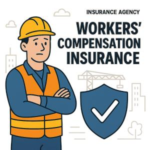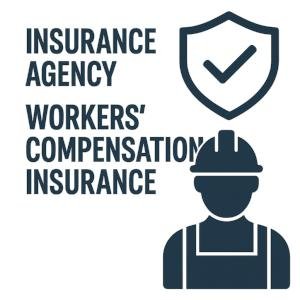
Shift Scheduling & Fatigue: Impact on Workers Compensation Costs
August 3, 2025
Building a Workers’ Comp Policy—Georgia ASO
August 3, 2025
Selecting the right workers’ compensation broker is a critical decision that can substantially impact your organization’s risk management and financial stability. With a multitude of options available, it’s essential to approach this choice methodically to ensure you partner with a broker who not only understands your industry but also aligns with your company’s specific needs and goals. In this article,we explore nine key questions to ask before you sign any agreement,providing a strategic framework to help you make an informed,confident decision in securing the best workers’ compensation support for your buisness.
Table of Contents
- Understanding the Broker’s Industry Expertise and Experience
- Evaluating Coverage Options and cost Management Strategies
- Assessing Claims Handling and Employer Support Services
- reviewing Compliance Assistance and Risk Management Resources
- Q&A
- To Conclude
Understanding the Broker’s Industry Expertise and Experience
When evaluating a potential workers comp broker, it’s crucial to delve deeply into their industry-specific expertise.A broker well-versed in the nuances of workers compensation insurance for your particular business sector can anticipate challenges, tailor coverage, and negotiate more effectively on your behalf. Their knowledge extends beyond just policies-they understand the regulatory environment, claims trends, and risk management practices unique to your field. This targeted insight often translates into cost savings and a smoother claims experience down the line.
Consider asking about their experience with:
- Similar businesses or industries they’ve represented
- Frequency and outcomes of claims managed
- Regulatory compliance and updates in workers comp law
- Risk mitigation strategies recommended
| Experience Factor | importance | Broker’s Track Record |
|---|---|---|
| Industry Specialization | High | 5+ years in manufacturing sector |
| Claims Handling | Medium | Handled 200+ claims with 90% positive resolution |
| Regulatory Knowledge | High | Regular training on state workers comp changes |
| Risk Management Advice | High | Implemented safety programs reducing claims by 15% |
Evaluating Coverage Options and Cost Management Strategies
When considering the various workers’ compensation insurance options, it’s essential to understand how coverage limits, policy inclusions, and exclusions can affect your overall risk and financial exposure. A proficient broker should guide you through each option’s nuances, highlighting what is and isn’t covered so there are no surprises down the line. Evaluate the broker’s ability to tailor policies that align with your industry’s specific risks and your company’s financial tolerance. Remember, the cheapest policy might not always offer the best protection, and conversely, the most extensive one may come with unnecessary costs for your operation.
Effective cost management strategies extend beyond premium negotiation. Your broker should provide insight into loss control and claim management techniques aimed at reducing future premiums by minimizing workplace injuries. These strategies include:
- Risk assessments to identify potential hazards.
- Employee training programs to promote safety and compliance.
- Early intervention and claims handling to manage incidents swiftly and reduce claim costs.
| Strategy | Benefit | Impact on Cost |
|---|---|---|
| Regular Safety Audits | Identify and mitigate workplace hazards. | Lower probability of claims. |
| employee Wellness Programs | Improve overall health and reduce injury rates. | Reduced claims frequency. |
| Claims Advocacy | Ensure fair and timely claims resolution. | Minimized litigation and administrative expenses. |
Assessing Claims Handling and Employer Support Services
When evaluating potential brokers, it’s crucial to understand how they manage claims and support both employers and employees throughout the process. A responsive and efficient claims handling system can significantly reduce downtime and prevent misunderstandings. Ask about their approach to coordinating dialog between injured workers, medical providers, and insurers. Also, inquire if they provide digital tools or portals that streamline claim submissions and track progress transparently. Brokers who prioritize clear, ongoing communication tend to foster trust and minimize disputes, benefiting everyone involved.
Consider these key aspects when reviewing their support services:
- Speed and accuracy of claims processing
- Accessibility of support staff during critical periods
- Customized return-to-work programs to expedite recovery
- Ongoing training or education resources for employers
- Proactive risk management advice that reduces future claims
| Service Component | Key Benefit | Typical Response Time |
|---|---|---|
| Claims Reporting | Fast, accurate filing | Within 24 hours |
| Employer Assistance | Policy guidance and compliance | Same day support |
| Return-to-Work Programs | Reduced downtime and costs | Ongoing follow-up |
reviewing Compliance Assistance and Risk Management Resources
When vetting potential workers’ comp brokers, it’s crucial to identify whether they provide comprehensive compliance assistance tools. Brokers equipped with up-to-date resources can guide your business through the often complex regulatory landscape, helping you avoid costly penalties or gaps in coverage. Look for brokers who offer customized checklists, audit support, and educational materials tailored to your industry’s specific requirements. The right broker acts as a compliance partner, ensuring you stay aligned with ever-evolving workers’ comp laws and standards.
Equally important is a broker’s approach to risk management. High-quality brokers don’t just sell policies; they provide strategic insights to reduce workplace injuries and claims frequency. Consider whether they offer services such as:
- Risk assessments tailored to your operations
- Employee safety training programs
- Claims analysis with actionable recommendations
- Loss prevention technology integration
These proactive measures can result in better premium rates and healthier workforce outcomes. Below is a summary table comparing typical compliance and risk management services offered by brokers:
| Service Category | Typical Features | Business Impact |
|---|---|---|
| Compliance Support | Regulatory updates, audit prep, documentation checklists | Reduces legal risk, ensures policy accuracy |
| Risk Management | Site inspections, safety training, claims analytics | Lowers claims, optimizes premiums |
Q&A
Q&A: Choosing a Workers Comp Broker – 9 Questions to Ask Before You Sign
Q1: Why is selecting the right workers comp broker critically important for my business?
A1: A informed broker can definitely help you secure the best coverage at competitive rates, ensure compliance with regulations, and provide expert guidance on claims management – ultimately protecting your business from financial risk and liability.Q2: How can I assess a broker’s experience and expertise in workers’ compensation?
A2: Inquire about the broker’s tenure in the industry,familiarity with your specific sector,and credentials such as certifications or affiliations with industry organizations. Experienced brokers will have a track record of successfully managing workers comp policies and claims.
Q3: Should I consider the broker’s access to multiple insurance carriers?
A3: Absolutely. Brokers with relationships across various insurers can offer a wider range of policy options, enabling competitive pricing and tailored coverage that best suits your business needs.
Q4: What role does claims support play in evaluating a workers comp broker?
A4: Effective claims support is critical. Ask how the broker assists during claims, their approach to managing and mitigating claims, and whether they provide resources or advocacy to expedite resolution and reduce costs.
Q5: How transparent should a broker be regarding fees and commissions?
A5: Clarity is essential. Ensure the broker clearly discloses all fees, commissions, and potential conflicts of interest upfront to avoid surprises and to establish a trustworthy partnership.
Q6: Can a broker help with workplace safety programs and risk management?
A6: Many brokers offer value-added services such as safety consultations, risk assessments, and employee training programs - all of which can lower your workers comp premiums and improve overall workplace safety.Q7: What is the broker’s communication style and availability?
A7: Choose a broker who demonstrates clear,proactive communication and is accessible when you need advice or assistance. Strong client service supports smoother policy management and quicker issue resolution.Q8: How do I verify the broker’s licensing and regulatory compliance?
A8: Verify licensing through your state’s insurance department website. A licensed broker adheres to regulatory standards, which provides an added layer of security and professionalism.
Q9: Should I seek references or reviews from other clients?
A9: Yes. Client testimonials, case studies, or references can provide insight into a broker’s performance, reliability, and how they handle complex workers comp challenges, helping you make a more informed decision.
By asking these critical questions, you can select a workers comp broker who not only secures appropriate coverage but also acts as a strategic partner in protecting your business and workforce.
To conclude
In today’s complex workers’ compensation landscape, selecting the right broker is a decision that can significantly impact your organization’s risk management and financial stability. By asking these nine critical questions,you ensure a thorough evaluation process that aligns your company’s needs with a broker’s expertise,services,and commitment to support. Taking the time to vet potential brokers carefully not only helps secure comprehensive coverage but also establishes a trusted partnership-one that can navigate the challenges ahead with confidence and clarity. Make your choice strategically, and position your business for long-term success.
“This content was generated with the assistance of artificial intelligence. While we strive for accuracy, AI-generated content may not always reflect the most current information or professional advice. Users are encouraged to independently verify critical information and, where appropriate, consult with qualified professionals, lawyers, state statutes and regulations & NCCI rules & manuals before making decisions based on this content.






